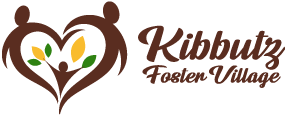Our mission is to make sure that every child moved from their homes in a traumatic event or teen parent can find a piece in one of our homes untill they find a permanent home. Provide consistency, stability and opportunities to spend time with other foster children and members of the village.
The village will make them feel secure, happy and part of a big family.
We will be different from any other Foster place, as we will have an emergency house for foster children from one family. This will be beneficial for the children, as they will stay together and less traumatised and stressed.
Our advantages: moving the children from house to house does not solve the problem but complicates it. Children in foster care need to be raised in foster villages in order to be able to build themselves as individuals to be examples or role model of society and not to become a person affected by drugs or to become homeless and inferior citizen. With your support we can provide them activities and therapies which will give them the opportunity to discover their talents, to acquire knowledge and skills that will support their life outside the village. As Robert Owen says the environment determines the character.
The Father of the Cooperative Movement
Robert Owen, the father of British socialism (1771-1858) was a Welsh textile manufacturer, philanthropic social reformer, and one of the founders of utopian socialism and the cooperative movement, as early as the 1820s, Owenties decided to found co-operative retail shops drawing on their master principle of fair wages.
Owen is best known for his efforts to improve the working conditions of his factory workers and his promotion of experimental socialistic communities. He believed that to change the environment was to change human nature, without this change of the individuals they would remain hostile to those around them. As long as such a social order continued, the positive aspect of Christianity could never be put into practice.
Owen believed that such communities could be established by individuals, by parishes, counties or by state; in each case, there would be supervision by duly qualified persons. Work and the enjoyment of its results would be shared collectively.
Our Inspiration
Our inspiration comes not just from the Kibbutzim, Owens philosophy or other places we have been, but also from a place called Mondragon. Their model is very interesting and inspirational: Could Co-Ops Solve Income Inequality?
In the Basque country of Northern Spain, the Mondragon Corporation—the world’s largest cooperative business enterprise—has found ways to weather economic crises, avoid severe income inequality, and build long-term worker loyalty. Why don’t more businesses follow “the Mondragon model”?
Introduction, MONDRAGON Corporation | MONDRAGON (mondragon-corporation.com)
Would you like more co operatives like them in the world?
Are you ready to support or help us to achieve this and build a better brighter future.
Dr. M. Scott Peck did extensive research on the differences between traditional community and this idea of “True Community” in his book titled, “The Different Drum:
Community Making and Peace.”. Here they are in Peck’s own words: Inclusivity, commitment and consensus: Members accept and embrace each other, celebrating their individuality and transcending their differences. They commit themselves to the effort and the people involved. They make decisions and reconcile their differences through consensus.
- Realism: Members bring together multiple perspectives to better understand the whole context of the situation. Decisions are more well-rounded and humble, rather than one-sided and arrogant.
- Contemplation: Members examine themselves. They are individually and collectively self-aware of the world outside themselves, the world inside themselves, and the relationship between the two.
- A safe place: Members allow others to share their vulnerability, heal themselves, and express who they truly are.
- A laboratory for personal disarmament: Members experientially discover the rules for peacemaking and embrace its virtues. They feel and express compassion and respect for each other as fellow human beings.
- A group that can fight gracefully: Members resolve conflicts with wisdom and grace. They listen and understand, respect each others’ gifts, accept each others’ limitations, celebrate their differences, bind each others’ wounds, and commit to a struggle together rather than against each other.
- A group of all leaders: Members harness the “flow of leadership” to make decisions and set a course of action. It is the spirit of Community itself that leads and not any single individual.
- A spirit: The true spirit of Community is the spirit of peace, love, wisdom, and power. Members may view the source of this spirit as an outgrowth of the collective self or as the manifestation of a Higher W
Our Goal
To create a Kibbutz Foster Village, based on the principles of Robert Owen.
We must , by our planning build up a new environment for the people in this country.
Take control of our lives, build resilience and create a sustainable future.
Our Dream:
let’s build our new future by building cooperatives and be an example for a sustainable life by helping children in need.
